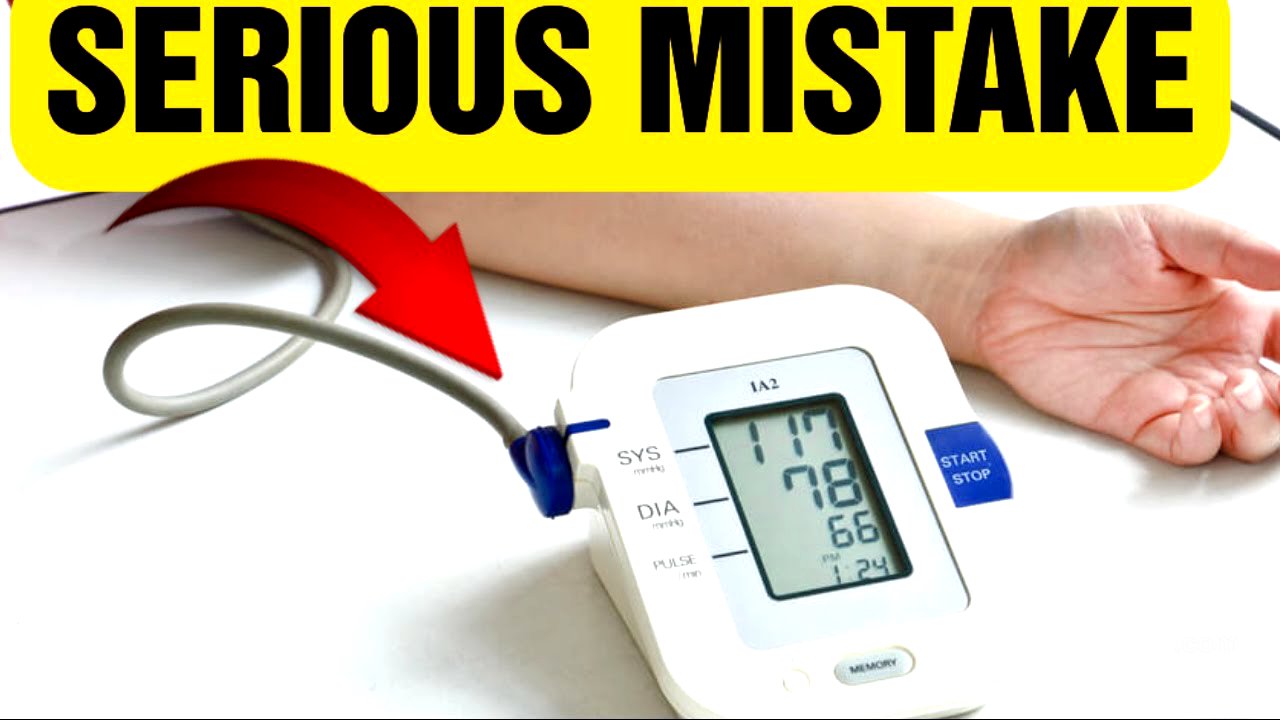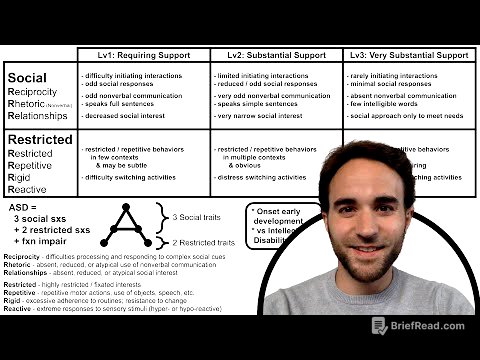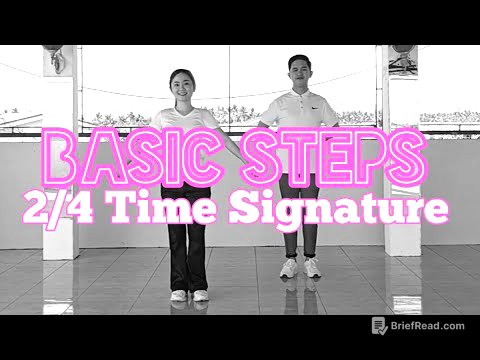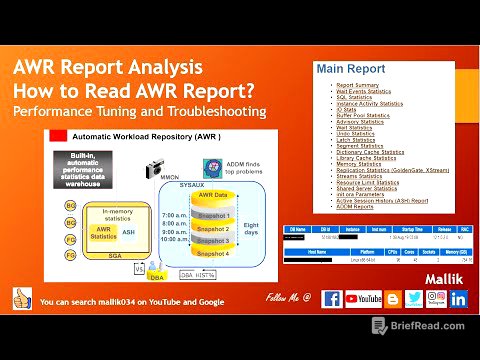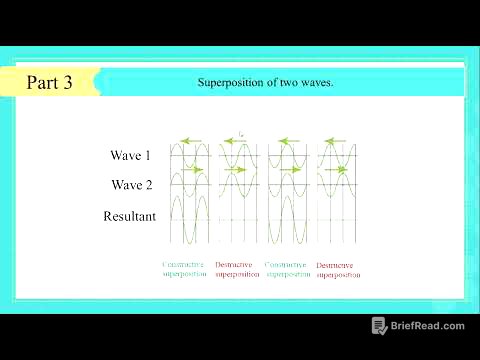TLDR;
This video outlines nine common morning mistakes that individuals with high blood pressure often make, which can negatively impact their condition. These mistakes range from skipping medication based on a single good reading to consuming excessive amounts of caffeine. The video emphasizes the importance of consistent medication adherence, mindful consumption of teas and sodium, prioritizing sleep, proper blood pressure monitoring, and awareness of over-the-counter medications that can raise blood pressure. Additionally, it highlights the significance of identifying underlying causes of hypertension and moderating coffee intake.
- Skipping medication based on a single good reading can lead to blood pressure spikes.
- Certain teas can interfere with blood pressure, either raising or lowering it.
- High-sodium breakfasts contribute to elevated blood pressure levels.
- Insufficient sleep disrupts the body's natural blood pressure regulation.
- Improper blood pressure monitoring can lead to inaccurate assessments.
- Over-the-counter anti-inflammatory medications can raise blood pressure.
- Excessive coffee consumption can trigger heart arrhythmias and increase blood pressure.
Skipping Medication Based on a Good Morning Reading [0:50]
Skipping blood pressure medication after a normal reading is a common mistake. Medications are prescribed to maintain consistent control over time, not just to address isolated high readings. A good reading likely indicates the medication is working effectively. Skipping doses can lead to blood pressure spikes, increasing the risk of stroke, heart attack, and kidney damage. Instead of self-adjusting medication, any concerns about symptoms like dizziness should be reported to a doctor for proper evaluation and potential dose adjustment.
Drinking Teas That Interfere with Blood Pressure [2:06]
Certain teas can affect blood pressure. Teas like green tea, black tea, ginger tea, and yerba mate contain compounds that stimulate the nervous system, potentially raising blood pressure, especially for those with hypertension. Conversely, teas like hibiscus, lemon balm, and horsetail can lower blood pressure, which may be problematic if already on medication and blood pressure is well-controlled. Consulting a doctor or pharmacist before introducing herbal teas is crucial to avoid interactions with medications.
Eating a High Sodium Breakfast [3:13]
Consuming a breakfast high in sodium is detrimental for individuals with high blood pressure. Foods like bacon, ham, cheese, sausages, and processed bread contribute to a sodium overload. Exceeding the recommended daily limit of 2,000 mg of sodium can have consequences for hypertensive individuals. Reading food labels and opting for low-sodium choices like fruits, whole grains, oatmeal with banana and flax seed, or avocado and egg toast with berries is advisable.
Not Getting Enough Sleep [4:10]
Insufficient sleep significantly impacts blood pressure. During deep sleep, blood pressure naturally drops, providing the cardiovascular system with rest. However, interrupted or poor-quality sleep prevents this dip, causing elevated blood pressure throughout the night and into the next day. Lack of sleep activates the body's stress response, increasing cortisol and adrenaline levels, which constrict blood vessels and raise heart rate. Consistently getting less than 6 to 7 hours of quality sleep can worsen high blood pressure.
Not Monitoring Properly [5:37]
Proper blood pressure monitoring is crucial, but it must be done correctly. Avoid obsessively measuring multiple times a day, as it increases stress, which raises blood pressure. Instead, check once in the morning and once in the evening after sitting quietly for 5 minutes. Use a validated upper arm monitor and maintain a log with the date, time, systolic and diastolic readings, and heart rate to help doctors identify patterns and trends.
Thinking You Are Fine Because You Have No Symptoms [6:27]
Assuming you're fine because you have no symptoms despite having high blood pressure is dangerous. High blood pressure is often called the "silent killer" because it typically doesn't cause noticeable symptoms until serious damage has occurred. Elevated pressure quietly strains the heart, damages arteries, and increases the risk of heart attack, stroke, kidney failure, or vision loss. Relying on how you feel instead of regular monitoring and treatment can provide a false sense of security.
Taking Over-the-Counter Meds That Raise Blood Pressure [7:28]
Over-the-counter anti-inflammatory medications like ibuprofen, naproxen, and diclofenac can raise blood pressure, especially with prolonged use. Even short-term use can interfere with blood pressure control. Consulting a doctor about alternatives or safe use is essential. Acetaminophen may be a better option depending on overall health and liver function.
Not Investigating the Cause of Your High Blood Pressure [8:17]
Identifying the underlying cause of high blood pressure is important. While many cases are essential hypertension with no single cause, others may have treatable root issues. Thyroid disorders, chronic stress, kidney problems, or hormonal imbalances can raise blood pressure. If pressure is difficult to control with medication, further investigation with blood tests, kidney function panels, and hormone levels may be necessary to guide the best treatment.
Drinking Too Much Coffee [9:08]
Moderate coffee intake (up to three cups per day) may be heart-healthy, but excessive caffeine can raise blood pressure and trigger heart arrhythmias in sensitive individuals. Drinking six, seven, or eight cups a day or relying on strong espresso shots can do more harm than good. Knowing your limit and paying attention to how you feel after coffee is crucial to avoid negative effects.
